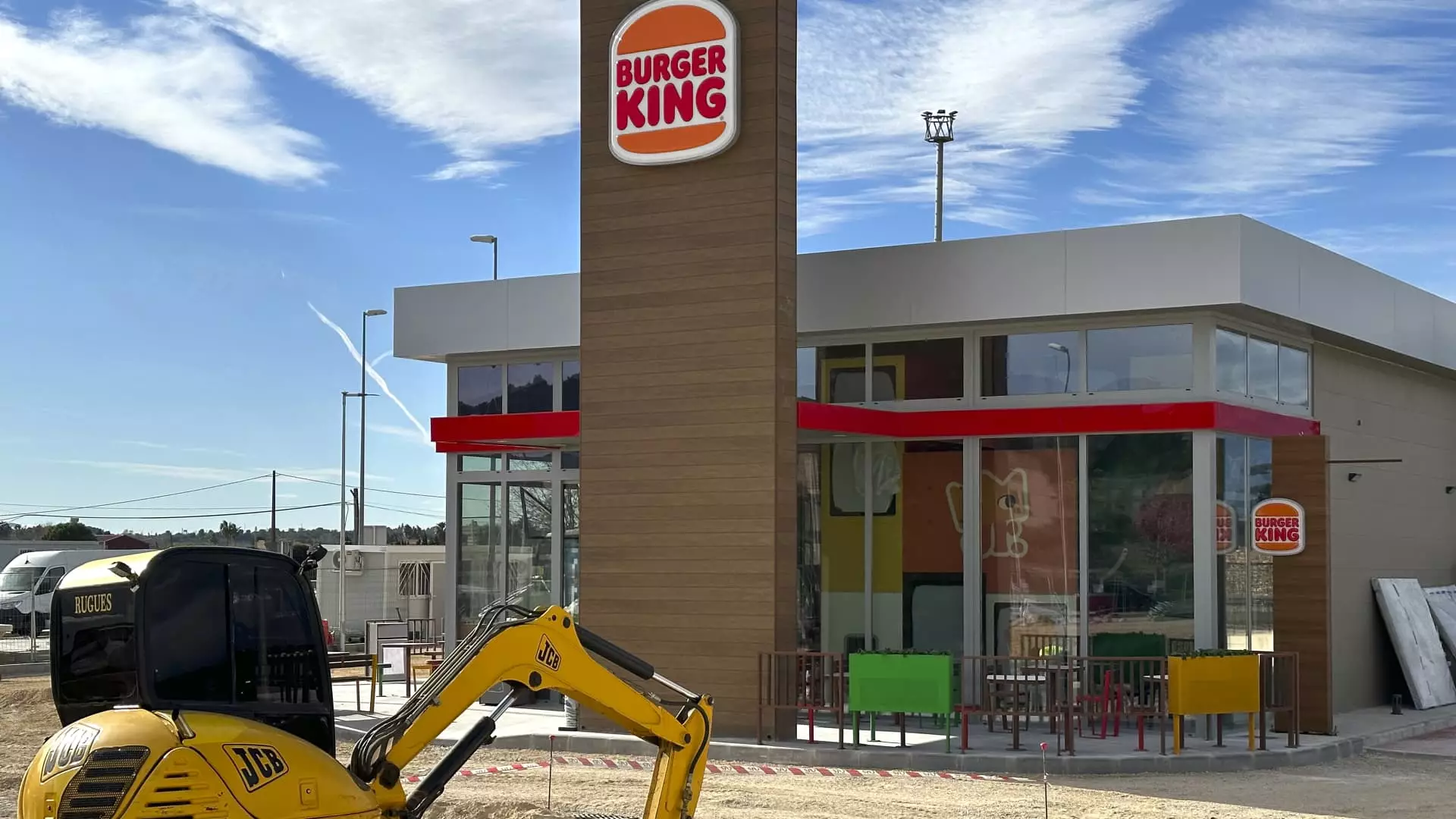On Tuesday, Restaurant Brands International (RBI) unveiled its latest quarterly earnings, revealing figures that fell short of market expectations. The company’s underwhelming performance prompted a 2% drop in its stock price during early trading hours. Analysts had anticipated higher outcomes, attributing this to a lackluster growth in same-store sales across RBI’s four major chains. The reported earnings per share were $0.93, slightly below the expected $0.95, while revenue also lagged at $2.29 billion, missing the analyst consensus of $2.31 billion. The overall worldwide same-store sales growth barely registered at 0.3% for the quarter, a stark contrast against the healthier projections many had anticipated.
Analysis of the individual chains within the RBI umbrella paints a grim picture, especially as Burger King, Firehouse Subs, and Popeyes reported declines in their home markets. Notably, Burger King’s same-store sales dipped by 0.7% during the three-month interval ending September 30. Analysts had projected stability for the fast-food giant, illustrating the growing pressures it faces while navigating a turnaround strategy initiated in September 2022. Consumer spending in restaurants has weakened significantly, a trend that has reignited fierce competition focused on value offerings. As CEO Josh Kobza noted, while the chain’s initiatives aimed at revitalization are underway, weakening consumer expenditure remains a formidable barrier.
Popeyes and Firehouse Subs Encounter Declines
For Popeyes, the downturn was even more pronounced, with same-store sales dropping by 4%. This decline was far from the anticipated 0.2% increase, signaling difficulties in driving customer traffic even as the chain rolled out pricing strategies intended to attract budget-conscious consumers. Promotions for value offerings, such as a three-piece chicken meal for $5 and the revival of the Big Box deal priced at $6, were implemented in hopes of enhancing sales. Although these promotions have begun to yield some improvements, the overall impact has yet to be fully realized.
Firehouse Subs also fell short of expectations, with sales diminishing by 4.8%, contrasting with forecasts suggesting a mere 0.4% decline. As the smallest entity within the RBI portfolio, Firehouse has faced a challenging environment in which attracting and retaining customers proves to be increasingly difficult.
Tim Hortons Shows Promising Results
Amidst the challenges faced by the other chains, Tim Hortons offered a glimmer of hope with a 2.3% growth in domestic same-store sales. While this performance outshone its peers, it still fell below Wall Street’s expectations of 4.1%. The Canadian coffee chain has reportedly enhanced its customer traffic and improved service speed, showcasing a positive trajectory despite the competitive pressures surrounding it.
Internationally, RBI’s same-store sales grew by 1.8%, missing projections of 2.2%. Overall, the company’s third-quarter net income remained at $252 million, equating to 79 cents per share, which was consistent with figures from a year prior. When excluding certain items, the earnings per share stood at $0.93, reflecting broader industry challenges but also some resilience.
Reflecting on these results, RBI has revised its expectations for full-year system-wide sales growth down to a range of 5% to 5.5%, reduced from the earlier expectations of 5.5% to 6%. This adjustment underscores the company’s acknowledgment of the current economic climate and its impact on consumer spending behaviors. As the company navigates the changes in market dynamics, RBI must leverage the momentum created in October, where signs suggest improved sales trends, to foster a more robust recovery in its financial performance. Ultimately, as competition continues to intensify, especially in the value sector, RBI will need to balance its promotional strategies with an understanding of consumer sentiment to regain market traction.


Leave a Reply